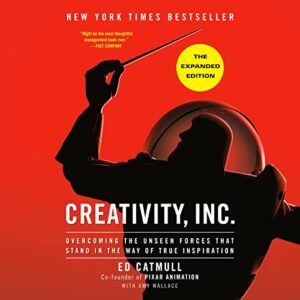Understanding the Genesis of Your Idea
Every great business, from small startups to global giants, began as a simple spark of inspiration. A moment where an individual saw a gap, a need, or an opportunity. Your business idea, no matter how preliminary, is that spark. Understanding its origin not only forms the foundation of your enterprise but also serves as a constant source of motivation on your entrepreneurial journey.
So, where did your idea come from? It might have been a personal experience, an observation, or even a random thought that kept coming back. The genesis of an idea often has roots in our passions, frustrations, or a combination of both. Think about it. When was the last time you thought, “There has to be a better way to do this!” or “I wish there was a service for…?” These moments of inspiration are where revolutions begin.
Embrace Your Uniqueness: In today’s saturated market, it’s easy to dismiss our ideas thinking, “It must already exist.” But, even if something similar does exist, your unique perspective, background, and approach can bring a fresh take that sets your business apart. Remember, several businesses thrive in the same industry, not because they’re the first, but because they’re different and resonate with a specific audience.
Reconnect with Your ‘Why’: At the heart of every business idea is a “why”. Why did you think of this idea? Why do you believe it’s worth pursuing? Reconnecting with your ‘why’ is essential, especially when you face challenges. Your ‘why’ becomes your anchor, your north star. It’s not just about making a profit, but about making a difference, solving a problem, or bringing joy to customers.
Believe in Your Vision: While feedback and guidance are vital, it’s equally crucial to believe in your vision. Not everyone will see what you see, at least not initially. Historical figures like Walt Disney, Steve Jobs, and many others faced skepticism. However, they held onto their vision, refined it, and persevered, leading to the creation of empires that changed industries forever.
It’s also worth noting that while some entrepreneurs have a clear vision from day one, others discover clarity as they progress. There’s no right or wrong approach. The journey of entrepreneurship is as much about self-discovery as it is about business development.
Take Small Steps: The journey of a thousand miles begins with a single step. Similarly, the path of entrepreneurship starts with understanding and believing in your idea. You don’t need a detailed business plan from day one. Start with what you know, be curious about what you don’t, and be open to learning and adapting. Small, consistent actions can lead to substantial growth over time.
Your business idea, regardless of its current stage, holds potential. The key is to nurture it, believe in it, and continually refine it. Embrace the entrepreneurial spirit within you, take pride in the genesis of your idea, and remember that every business, no matter how big, started with someone, somewhere, having an idea and the courage to pursue it.
“Your work is going to fill a large part of your life, and the only way to be truly satisfied is to do what you believe is great work. And the only way to do great work is to love what you do. If you haven’t found it yet, keep looking. Don’t settle. As with all matters of the heart, you’ll know when you find it.” – Steve Jobs
Refining and Narrowing Your Focus
The world of entrepreneurship is vast, with countless avenues and opportunities awaiting. However, the most successful businesses often stand out not because they attempt to do everything, but because they hone in on something specific. Refining your idea and narrowing your focus is not about limiting potential; it’s about amplifying impact. It’s about becoming the best at what you choose to do and serving your target audience exceptionally well.
Differentiate or Drown: In the vast sea of businesses, it’s essential to have a unique selling proposition (USP). What makes your idea stand out? Is it the quality, the approach, a particular feature, or the experience you’re offering? By refining your focus, you can zero in on what sets your business apart and make sure it shines through in every aspect, from marketing to product delivery.
Identify Your Niche: The phrase “Jack of all trades, master of none” is especially relevant in the business world. Rather than catering to everyone, find your niche. Who are the specific people your business idea will benefit the most? Understanding this will not only help in creating tailored solutions but also in building a loyal customer base that resonates with your brand.
Clear Objectives Lead to Clearer Outcomes: The process of refining your focus also means setting clear, measurable objectives. What do you aim to achieve in the next month, six months, or year? Having precise goals will guide your actions and decisions, ensuring you stay on track and avoid the pitfalls of unnecessary distractions.
Lean Into Feedback: Feedback is a treasure trove of insights that can help refine your focus. Encourage reviews, conduct surveys, or even have one-on-one discussions with potential clients or customers. Listen actively. Sometimes, an outsider’s perspective can shed light on areas you hadn’t considered, guiding you towards a more refined and effective focus.
Continuous Learning and Adaptation: The business landscape is ever-evolving. What’s relevant and revolutionary today might be commonplace tomorrow. Staying updated with industry trends, technological advancements, and shifts in consumer behavior will enable you to tweak and refine your focus, ensuring your business remains ahead of the curve.
Narrowing your focus might seem counterintuitive in an era of boundless opportunities. However, remember that depth often trumps breadth. A laser-focused approach can help you offer unparalleled value to your target audience, build stronger relationships, and establish your brand as a leader in its niche.
As you embark on this entrepreneurial journey, resist the allure of spreading yourself too thin. Dive deep, refine, and narrow your focus. By mastering a specific domain, you not only enhance the quality of your offerings but also solidify your position in the market. And always remember, in the words of Tony Robbins, “One reason so few of us achieve what we truly want is that we never direct our focus; we never concentrate our power. Most people dabble their way through life, never deciding to master anything in particular.” Don’t dabble; master!
Validating and Testing the Market
Imagine you’ve poured your heart, time, and resources into crafting a product or service, only to realize there isn’t sufficient demand. This scenario is, unfortunately, a reality for many entrepreneurs. However, it’s preventable. Before diving headfirst into full-fledged business operations, validating and testing the market is paramount. By doing so, you’re not just ensuring there’s demand—you’re aligning your business with real-world needs and setting it up for lasting success.
Start with Hypothesis Testing: Every business idea is essentially a hypothesis—”I believe Product X will solve Problem Y for Audience Z.” Before investing heavily, test this hypothesis. Create a minimal viable product (MVP), a basic version of your idea, and introduce it to a select group. Gather feedback and measure the response. This step can save you from potential pitfalls and guide enhancements.
Engage in Market Surveys: Surveys are an invaluable tool. By targeting potential customers, you can gauge demand, understand preferences, and even identify price points that your audience is willing to pay. The insights derived can shape your final offering, ensuring it meets market needs.
Leverage Digital Platforms: Websites, social media, and other online platforms offer a low-cost way to validate your idea. Launch a teaser campaign, share behind-the-scenes of your product development, or even run pre-order promotions. The response will give you a clear indication of market enthusiasm and areas of improvement.
Feedback is Gold: Embrace both positive and negative feedback. While praises boost morale, constructive criticism can be even more beneficial. It highlights gaps, allowing you to refine your offering and ensuring that when you do launch, you’re meeting genuine market needs.
Pilot and Prototype: Before a full launch, consider running pilot programs or offering prototypes for users to try. This not only builds anticipation but also allows for real-world testing. By analyzing how consumers use your product or interact with your service, you can make final tweaks that could make all the difference.
Stay Adaptable: One key takeaway from market validation is adaptability. Sometimes, the market might need something slightly different than what you initially envisioned. Being willing to pivot or adjust based on feedback can be the difference between a product that’s “nice to have” and one that’s “can’t live without”.
The validation phase might seem daunting, especially when you’re eager to launch. However, it’s a crucial step that can shape the trajectory of your business. By taking the time to validate and test, you’re building a foundation rooted in market needs, ensuring not just a successful launch, but long-term viability and growth.
As you stand on the brink of entrepreneurship, let market validation be your guiding star. By aligning your passion with market demand, you’re setting your business up for success. Remember, the most successful businesses aren’t just about brilliant ideas; they’re about ideas that resonate with, and serve, the world. And in the words of Reid Hoffman, co-founder of LinkedIn, “The fastest way to change yourself is to hang out with people who are already the way you want to be.” So, engage with your potential customers, learn from them, and let them guide your path to success.
Conclusion
Embarking on the entrepreneurial journey is both an exhilarating and daunting endeavor. The seed of any great enterprise is a well-defined business idea—one that’s not just inspired, but also meticulously refined, validated, and aligned with the market’s needs. As you’ve journeyed through understanding the genesis of your idea, refining your focus, and validating it in the real world, it’s evident that building a successful business is as much about passion as it is about precision and planning.
Every entrepreneur will face challenges and uncertainties, but it’s the clarity of vision, the unwavering belief in one’s idea, and the ability to adapt and learn that set apart the successful ventures from the rest. Remember, it’s not about having a groundbreaking idea; it’s about taking that idea, understanding its true potential, shaping it according to real-world demands, and persistently pushing forward.
In your entrepreneurial journey, take pride in every step, every decision, and every risk. Embrace the learning curve, and let each experience refine and elevate your business idea. As Walt Disney once said, “All our dreams can come true, if we have the courage to pursue them.” So, define your dream, give it shape, validate its worth, and muster the courage to turn it into a thriving reality.
Best of luck in defining and nurturing your business idea. The world awaits your innovation!







